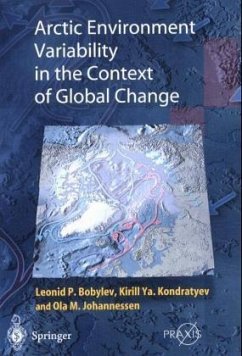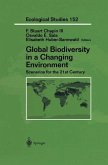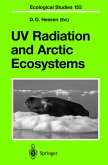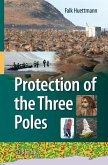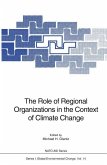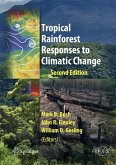In the early part of the twenthieth century, scientists were convinced that the world's climate was largley driven by the Arctic, then known as the kitchen of global weather. Although today's observational data and numerical modelling now outdate this thinking, it is still believed that the Arctic environment does have a strong influence on global climate and therefore it is particularly important to understand the complexities of this ecosystem in the context of global warming. Arctic Environment Variability in the Context of Global Change is a study of environmental dynamics in the Arctic. The problems of atmosphere composition - including minor gases, aerosols and clouds - are reviewed, and the impact of human activities ins put into context. This book: * analyses the results of observational data and numerical modelling that characterise the Arctic basin pollution dynamics and their impact on ecosystems; * details a study of environmental dynamics in the Arctic, coupled with ecosystem dynamics to provide greater understanding of the Arctic environment; * details problems in the study of general circulation in the atmosphere and oceans from the 1930s through to today's modern observational data and numerical modelling.
The main focus of this book is the study of environmental dynamics in the Arctic, coupled with ecosystem dynamics. Particular emphasis is placed on problems of the composition of the Arctic atmosphere, including minor gases, aerosols and clouds, as well as changes in the composition due to impacts of human activity. Analysis of observational data and numerical modelling results, which characterize the Arctic basin pollution dynamics, and its impact on ecosystems is also provided. Other topics covered include problems of general circulation in the atmosphere and oceans - beginning with the 1930s when the Arctic was regarded as the kitchen of global weather and climate and concluding with the situation today when modern observational data and numerical modelling make for a more balanced view.
The main focus of this book is the study of environmental dynamics in the Arctic, coupled with ecosystem dynamics. Particular emphasis is placed on problems of the composition of the Arctic atmosphere, including minor gases, aerosols and clouds, as well as changes in the composition due to impacts of human activity. Analysis of observational data and numerical modelling results, which characterize the Arctic basin pollution dynamics, and its impact on ecosystems is also provided. Other topics covered include problems of general circulation in the atmosphere and oceans - beginning with the 1930s when the Arctic was regarded as the kitchen of global weather and climate and concluding with the situation today when modern observational data and numerical modelling make for a more balanced view.

